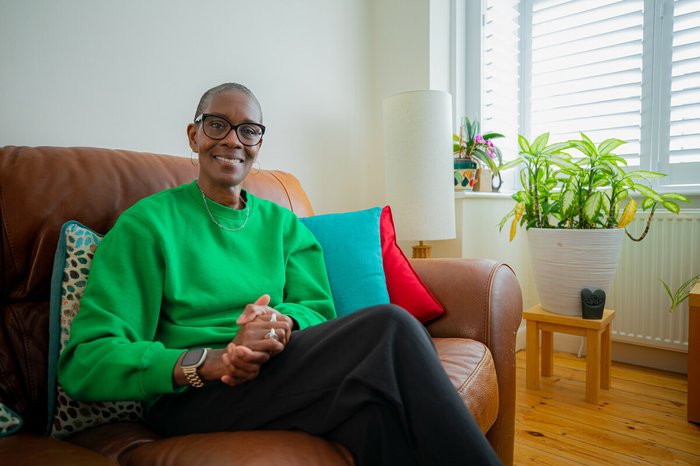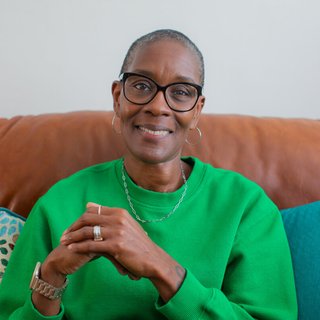Because people are missing out on being a part of a supportive community
47% of people with blood cancer do not feel part of any community, despite 70% of people with blood cancer saying this is important to them. Yvonne talks about her experience of joining a support network.
Stronger together
When people are diagnosed with blood cancer, they are often told they have a subtype such as chronic lymphocytic leukaemia or follicular lymphoma. As a result, they think their condition is relatively rare, and are unaware of the large community of people who are going through similar experiences – when in reality, there's roughly 280,000 people living with or in remission from blood cancer in the UK.
The struggle of finding a community
Our survey showed that 47% of people with a blood cancer diagnosis do not feel part of any community – be that their sub-type condition (e.g.lymphoma), the blood cancer community, or even the cancer community. Yet 70% say this is important to them.
And for people affected by blood cancer who are of Asian, black, or mixed ethnicity, finding a supportive community is even more likely to be important (75% vs 63%). The proportion of these people saying it was extremely or very important to them was almost double that compared to people from a white background (49% vs 29%).
Also, those on active monitoring (watch and wait) or with a rarer type of blood cancer rated this as more important than others, which suggests it’s not about finding a niche community, but as many people as possible to talk to about worries that resonate across the spectrum.
And it’s not just those with a diagnosis who want to be part of a community. Friends and family also want to find support from others who also have a loved one with a diagnosis, with 71% saying they do not belong to any community, yet 55% saying this would be important to them.

Different types of blood cancer, similar experiences
While there are important nuances between the different types of blood cancer, and each person’s circumstances are unique to them, there are also lots of similarities in experiences between different types of blood cancer.
For example, much of the blood cancer community experience problems getting diagnosed quickly and suffer the psychological impact of this later. Also, people with blood cancer are more likely to need chemotherapy or be put on active monitoring (watch and wait). Similarly, people with blood cancer’s weakened immune system means they are more likely to wrestle with the social and mental impact of shielding.
All of these things and many more unite people across the blood cancer community. In fact, in many cases the experience of someone with a chronic leukaemia will be more similar to that of someone with lymphoma or myeloma.
By considering leukaemia, lymphoma and myeloma as different conditions, we risk people missing out on the benefits of building supportive relationships with others going through similar experiences, and of being part of a larger community that they can draw strength and comfort from.
We believe the lack of awareness of blood cancer is inhibiting people from realising the support they need is readily available.
Tanya Kumar, Support Services Officer at Blood Cancer UK:
"We often hear from people who feel isolated in their experiences and want to connect with others. But it can be a challenge to find support when someone’s condition does not contain the words ‘blood cancer’. People might search for their specific condition and therefore miss out on the connection and support from others in the blood cancer community. Especially when there are many shared themes and experiences across the different types of blood cancer."
At Blood Cancer UK, we have shown what can happen when people affected by blood cancer join together as a community
Our online forum is a brilliant example of how people affected by blood cancer can get vital support from people who are going through the same things.
One of the best things about the forum is that it is often people with one type of blood cancer giving support to someone with another type of blood cancer.
We also know that when it comes to getting support from other people going through the same thing, it often works best when people are a similar age, from a similar background, or live in the same area. With a community of hundreds of thousands of people with blood cancer, people are much more likely to find the right support for them.
And when we do come together as one entire blood cancer family, we’re not just more likely to uplift one another, but we’re more likely to amplify our collective voice so that people take note and listen to the needs of all those who are part of the blood cancer community.
And the more people with blood cancer who join together as one community, the more money we will raise for research, and the quicker we will reach the day when blood cancer is finally beaten.

